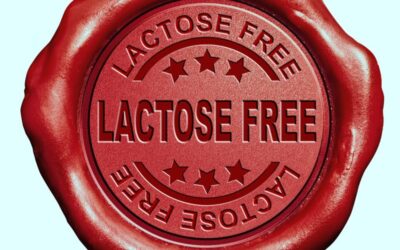Up close and personal
Living with irritable bowel syndrome (IBS) can be a challenging and sometimes an isolating experience. The unpredictable nature of symptoms can disrupt daily life and spoil your enjoyment of the simple pleasures of life. In this blog, I’m sharing a client’s very personal account of living with IBS symptoms. About how she discovered the low FODMAP diet was a turning point in the quest for relief and her improved well-being. For privacy, I’ll hold back on any identifiable details, but this intimate story about IBS and the low FODMAP diet has been echoed so many times throughout my IBS practice.
The beginning
“When I think back to when it actually began, I’d thought it was just a passing phase, but then I realised it was a constant companion. The mysterious and often uncomfortable digestive symptoms seemed to have no rhyme or reason. Bloating, embarrassing wind, abdominal pain and irregular bowel movements became a feature of in my daily routine. In order to be able to cope with work, especially meetings, I’d get up really early to accommodate the many bathroom visits. If I was travelling, I’d not eat the previous day as the thought of embarrassing myself on the journey was overwhelming. I felt frustrated and spent a lot of time seeking answers to what could be causing these disruptions to my life. I’d tried many different dietary regimes in the past, in an effort to improve my symptoms.
Seeking professional help
It was time to seek help from my GP and I initially had some blood tests to eliminate coeliac disease and other more sinister causes. A preliminary diagnosis of IBS was made and I was prescribed some medication that could help my symptoms. Whilst the diagnosis brought some clarity, it also raised questions about managing my condition. I put my faith in this, but felt let down when after a few weeks I realised that by now the drugs should have worked. During a revisit to the GP, it was suggested that I should look into the low FODMAP diet to help with my symptoms. I was sent off with a sheet and left to get on with it. Exploring this did initially give me some hope, with an abundance of research relating to the success of the low FODMAP diet. However, the amount of information about the diet was overwhelming, so I didn’t know where to start.
Embarking on the low FODMAP journey
The concept of the low FODMAP diet intrigued me, as it promised to help identify trigger foods and alleviate my symptoms. It involves temporarily eliminating specific groups of fermentable carbohydrates from the diet. Then reintroducing them systematically to pinpoint individual triggers. I was more than ready to take control of my health, but needed to find help to do this. Searching online I came across Debra, a Registered Dietitian and FODMAP expert. She offered virtual consultations, which fitted in with my busy work life. We had the initial telephone consultation and Debra immediately put me at ease, so I felt I was in good hands. My first consultation was the following week and already I felt empowered and actually quite excited to start. I took a longer lunch break for my first session and met her online via WhatsApp in my car!
The Elimination Phase
The elimination phase of the low FODMAP diet was both a challenge and an eye-opener. I had to be really careful reading labels and meal planning to avoid high FODMAP foods. My diet shifted to include staple foods like potatoes, rice, meat or fish and carrots or courgettes. With Debra’s help, I discovered new recipes that fit within the low FODMAP guidelines. She also gave some practical tips and ideas to make it seem less daunting. Some of her recipe ideas were really tasty! I had thought that the low FODMAP diet would be bland and boring. While it was tough adjusting to these dietary changes, I was determined to continue this time, to find relief.
Starting to see improvement
After a week or two I started to see some improvement. I had less bloating and the gurgling in my abdomen was much less. My clothes seemed to be more comfortable too. My days saw less frequent visits to the loo as my stools now were more formed. I was feeling a bit more in control – finally, but I did get a little complacent, trying new things, so had a few setbacks. To be honest, I was a bit devastated at this point, fearing the return of my full-blown symptoms. In checking this out with Debra, I felt reassured to continue and the symptoms abated. Four weeks and 3 days later, I was ready to consider the next phase of reintroductions. Admittedly, I was anxious, as I’d got used to being virtually symptom-free. Even though Debra assured me that this was “the exciting bit” and what I’d been working towards, I wasn’t so sure. However, I didn’t want to be stuck at this stage for longer than necessary, so took the plunge.
Discovering my triggers
As I gradually reintroduced FODMAP foods, I learned more about my body’s reactions. The majority of foods I tested gave me no symptoms at all. Some foods triggered only minor discomfort, while others led to more pronounced symptoms. It was hard if two challenges in a row gave me symptoms, but it was important to keep on track. This process taught me patience and self-awareness, helping me gain insights into how different foods interacted with my body. Over several weeks, I managed to complete all the challenges that were important to me. I then met with Debra again to do the next phase, which included foods that contained more than one FODMAP. But Debra helped me to make sense of my results so far, by drawing them together and guiding me onto the next phase. I felt as if she was holding my hand through the process, knowing I could message her at any time for support. By identifyoing the numerous safe foods, I was able to include these back into my diet. Those that gave me symptoms, I now either avoid (but thankfully these are few) or just not have too much of them.
Managing social situations
To be honest, eating out and attending social events presented some challenges during my low FODMAP journey. I learned to communicate my dietary needs to friends and family, which actually sparked some interesting conversations about health and well-being. I found that most people were understanding and supportive and I was surprised at how many people suffered with these kind of symptoms. Most restaurants and cafes I found catered for most dietary needs, although many had never heard of FODMAPs. Sometimes it was simpler to just ask for gluten and lactose free, which most understood and could manage. Some establishments went a stage further trying to accommodate my needs and were keen to know more about the low FODMAP diet.
My new relationship with food
Through this journey, I developed a healthier and more balanced relationship with food. I now appreciate sourcing and cooking from raw ingredients and discovered innovative ways to enjoy meals that were both flavourful and FODMAP-friendly. Cooking has become more of a creative outlet and I found joy in experimenting with new recipes. But, when time is short, I do have a few FODMAP-friendly jars in my cupboard and the odd low FODMAP ready meal in my freezer. Debra even shared a discount code, which helped tremendously, as some specialist foods can be more expensive.
A journey of empowerment
For so long my attention seemed to focus around my IBS symptoms. I felt IBS controlled me and I felt completely out of control. I made decisions about social activities and even holidays based around my IBS. Looking back, my journey with IBS and the low FODMAP diet was not just about managing symptoms; it was a journey of empowerment and self-discovery. It taught me to listen to my body, prioritize self-care and find my own way to well-being. While I still have occasional flare-ups, the knowledge and tools I gained from this experience have given me a sense of control that I never thought possible. This is not a path that I could have travelled alone though. With Debra holding my hand I feel the journey has been much more manageable. I think I’d have given up during those early days of flare ups, without her advice and support.
Conclusion
My personal journey with IBS and the low FODMAP diet has been a transformative experience. If you’re on a similar journey, I encourage you to embrace it with an open heart and a willingness to learn about how your body manages food. By taking control of your health and making informed choices, you can find relief from IBS. In discovering your own triggers, you can, like me, regain control of your life and enjoy it to your full potential. I just wish I’d done this a long time ago.”
Can a dietitian help with IBS relief?
If you need expert advice and support, as an IBS Dietitian trained in FODMAPs, I can use knowledge and experience to help you with the low FODMAP diet. It can be difficult to do alone, but with support, sufferers can identify their triggers and improve management of IBS symptoms. I’ll help you find practical ways to help you fit the low FODMAP diet into your lifestyle. Also ensuring that you still get all the nutrients you need from your food. I can be your ‘IBS Dietitian near me’, although I’m based in Cardiff, I practise across the UK via virtual sessions. I offer a free initial telephone consultation, so why not arrange a call today.
Disclaimer: This blog is for information purposes only and does not substitute for professional medical advice. Please consult your healthcare provider for personalised diagnosis and treatment of IBS.




